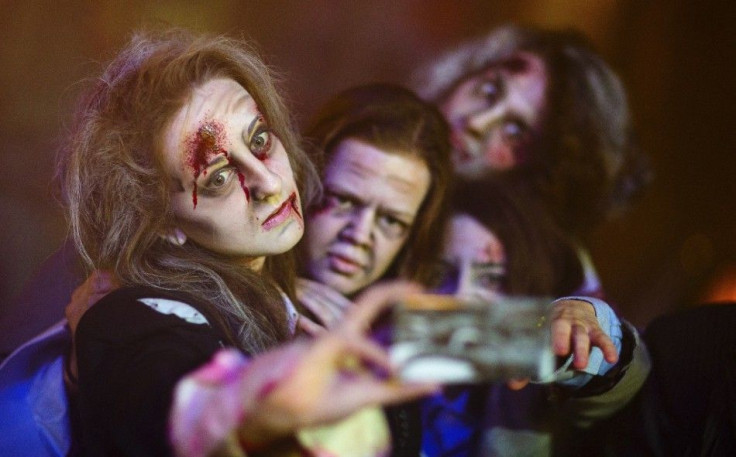Russia Warns Citizens – Take Selfies, Have Lice

It seems Russia is being deluged by a rising number of young people whose heads are infested by the parasitic insect head lice. This has prompted the country's health authorities to issue warnings against taking selfie photos.
According to the Kursk regional department of Rospotrebnadzor, the young people get the head louse because of the selfie craze. So to avoid catching it, they should stop taking selfies with their friends.
A selfie is an image of oneself taken by oneself using a digital camera or camera phone. It is especially meant to be posted on social media networks or sites. For a group of people to fit into the camera screen, they need to compress towards one another and put their heads together. And this is when the head louse can transfer, Rospotrebnadzor said. Those selfies can become conduits because the lice can jump from one hairy home to another.
The head louse, described by portal KidsHealth as "contagious, annoying, and sometimes tough to get rid of," lives among human hairs and feeds on tiny amounts of blood drawn from the scalp. Most kids around the world experience having them. However, lice aren't exactly dangerous because they don't spread disease. If for anything, what becomes dangerous is the possible infection that might arise from the scratching of a child's itchy scalp. "It's best to treat head lice quickly once they're found because they can spread easily from person to person," KidsHealth said. Russia has reportedly had some doctors banning children with a massive bundle of head lice from going to school to avert further spread of the parasitic insect.
The selfie term reached popular heights in 2013. Everyone, even celebrities and politicians, got addicted to it. Oxford Dictionaries' even made it the "word of the year" in 2013.
If they really can't avoid it, Russians shouldn't at least put their heads together, as is the case of the photo below.
Russias consumer protection agency says selfies spread lice. Putin exhibits proper selfie form http://t.co/6VbR57eUEI pic.twitter.com/gWcNQKuEsl
— Andrew Roth (@ARothNYT) October 27, 2014
Russian social media users immediately blasted the warning. "Are they suggesting most young Russians have lice?" Georgy Klochkov asks on the Lenta news website. Another user says: "This is wonderful!! Onishchenko's work still flourishes - the more bonkers the reason, the better."





















